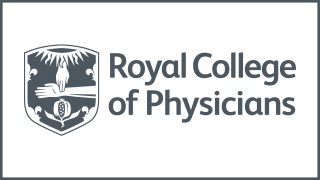Royal College of Physicians decides to be undecided about assisted dying

The Royal College of Physicians has decided to adopt a neutral position on changing laws on assisted dying – without consulting its members. Tim Dieppe discusses how this change in position seems unconstitutional, and why the law should not change. He concludes that the strong laws this country has are needed to protect the vulnerable.
The Royal College of Physicians (RCP) has decided to adopt a neutral position on whether the law should be changed to allow assisted dying.
Up until now its position has been to oppose a change in the law, and this has been backed by surveys of its members showing that a majority were against a change in the law.
Position change before consultation
In an extraordinary move, the RCP Council has resolved to adopt a neutral position ahead of polling its members again. A new poll will be launched next month, but the Council has decided that two-thirds of respondents must oppose a change in the position of the RCP for the change to a neutral position not to be adopted.
It seems incredible that a membership organisation could decide to change its position without consulting members and then determine that a two-thirds majority is required to oppose this change. One wonders what procedural justification the RCP Council has for such a move, or indeed whether it is constitutional at all.
Clear majority oppose a change in the law
When the RCP last consulted its members in 2014, 58.4% said they would not be prepared to “participate actively” in assisted dying. 62.5% said that they agreed with the following statement:
“(We) believe that with improvements in palliative care, good clinical care can be provided within existing legislation, and that patients can die with dignity. A change in legislation is not needed.”
When asked what the position of the RCP should be on a change in the law to permit assisted dying, 44% said that the RCP should oppose a change in the law, compared with 31% saying it should be neutral and 25% saying the RCP should support a change.
The RCP will again consult its 35,000 members on these questions next month but has decided to change its position ahead of this consultation.
Reasons why the law should not change
Assisted dying is illegal in the UK, with doctors facing a jail term of up to 14 years under the Suicide Act 1961. There are good reasons why a large majority of doctors are opposed to a change in the law, as well as all major disability rights groups in Britain (including Disability Rights UK, SCOPE, UKDPC, and Not Dead Yet UK).
Good palliative and clinical care mean that patients can be properly cared for right up to death. This should be the priority in terms of policy. Persistent requests for euthanasia are extremely rare when people are well cared for.
If euthanasia is legalised it would irretrievably change the nature of the doctor-patient relationship. The doctor can now be an agent of death and may even suggest that death is in the best interests of the patient. Patients will no longer be able to trust that doctors will work to do everything reasonable to protect their life and quality of living. Doctors will be mindful of the costs of care and it will be hard for them not to be influenced by this in how they advise patients.
Legalisation of euthanasia will also place pressure on patients who feel that they are a burden on society or on their families. Even if relatives and others are not directly expressing that they are a burden (and some relatives do not shy away from expressing this), some patients will feel that they have a duty to die. Strong laws are required to protect the vulnerable in these kinds of situations.
Ultimately, human life is sacred because we are all created in the image of God, regardless of any disability or how ill or incapable we are or have become. No one has the right to end a person’s life and the law should stand as a protection for all people in society.
Parliament and the courts agree
Parliament has rightly rejected attempts to change the law on assisted suicide several times in the last few decades for these and other very good reasons. The courts have also rightly rejected attempts to change the law, most recently in the case of Noel Conway which was heard in the Court of Appeal last year. The court gave a very strong judgment in this case in June last year, and permission to appeal to the Supreme Court was declined in November.
We hope that the Royal College of Physicians will reconsider its change of position, made without the approval of its members. Doctors and patients need to be protected with strong laws in this area.
